The persons, collectives, and organizations that defend human rights play a crucial role in strengthening democracy, the rule of law and the justice system, as well as in the struggle against inequalities. They fight for the effective elimination of any violations and in favor of the fundamental freedoms of peoples and individuals.
However, given the fragility of democratic institutions, human rights defenders who challenge the political and economic powers that violate rights are increasingly exposed to several acts of violence that affect, above all, the black, indigenous, and LGBTQIA+ populations, as well as women and workers, revealing the intersectionality of the problem.
Brazil has alarming numbers of murders, threats, and criminalization processes against human rights defenders, who are the constant victims of racism perpetuated by the Brazilian State and its bodies. Currently, Brazil is the fourth most dangerous country in the world for human rights defenders (Global Witness/2021), ranking after Colombia, Mexico, and the Philippines in the number of murders.
The fragility of democratic systems is also observed in the restrictions on social participation — including popular demonstrations — and in political violence, a phenomenon that is on the rise in Brazil.
— In 2022, the year of the federal elections, 26 cases of political violence were documented every 26 hours in Brazil. (Source: Political and Electoral Violence in Brazil: 2020 to 2022).
Justiça Global has focused its efforts on expanding the protection capabilities of human rights defenders (HRDs) in Brazil and around the world since its foundation. In addition to research, the organization provides support to defenders with the development of comprehensive Integral Protection methodologies for HRDs; presents complaints, and monitors the development and implementation of public policies to protect defenders and to effectively guarantee the exercise of their political rights and their rights to perform their work.
Understand the performance of the program
Monitoring the Protection Policy
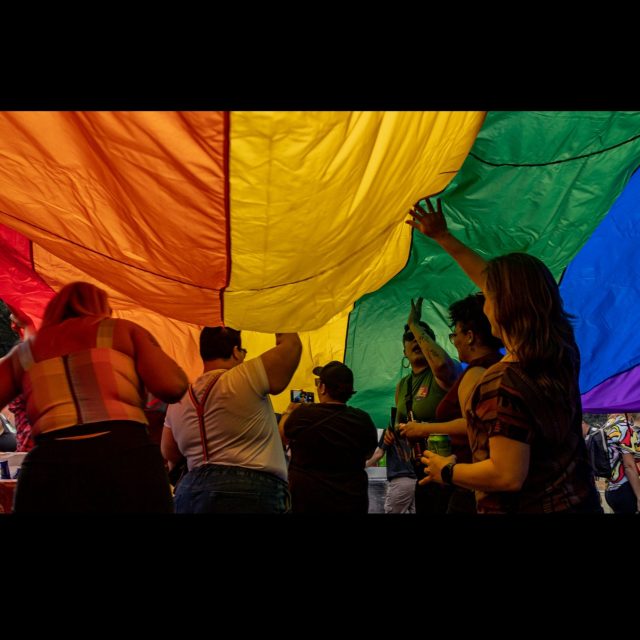
Caminhada Les-Bi., em São Paulo, em 2023. Foto: Beatriz Keiko / Cobertura colaborativa Maratona FODA-Mídia Ninja.
The organization attended and collaborated with the organization of the Latin American Consultations for Human Rights Defenders in 2001, 2002, and 2004. It also played a significant role in the creation of the Brazilian Committee of Human Rights Defenders in 2004, which became the main national network of social movements and civil society organizations involved with issues related to HRDs. Justiça Global also had a significant contribution to the design and implementation of the current Program for the Protection of Human Rights Defenders, Communicators and Environmentalists (PPDDH), having been part of its national coordination from 2005 to 2016.
Justiça Global is currently part of the Salles Pimenta Working Group (Ministry of Human Rights and Citizenship), which is responsible for preparing the National Plan for the Protection of Human Rights Defenders, Communicators and Environmentalists. It also monitors the topic with the National Human Rights Council, being part of its Permanent Commission of Human Rights Defenders and Fight Against the Criminalization of Social Movements since 2016.
Comprehensive protection training
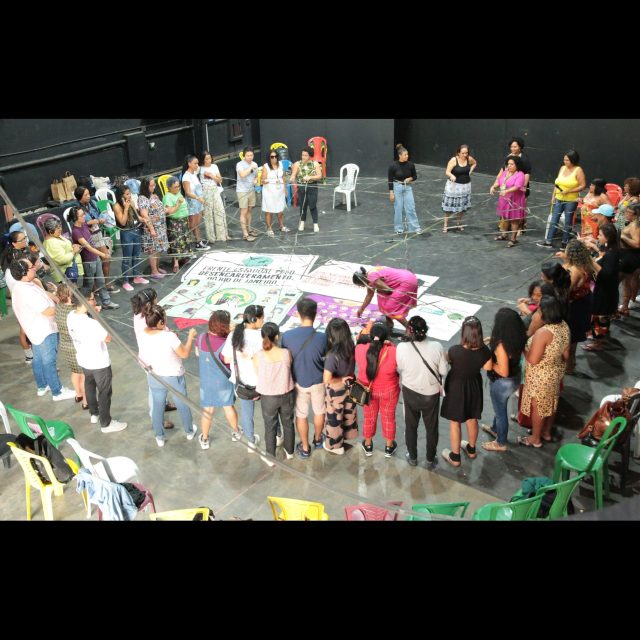
Human rights defenders and family members of victims of state violence in Brazil, the Philippines and Mexico participate in exchanges in 2021. Photo: Disclosure/Justiça Global.
Justiça Global develops Comprehensive Protection Workshops for Human Rights Defenders to create effective protection strategies and plans. The following topics are covered in the training workshops: physical protection; care and self-care; safe, digital communication for organizations and social movements, and people defending human rights. Based on the results of this work and the exchange of experiences with the organizations Front Line Defenders and International Protection, Justiça Global created a Handbook on Protection for Human Rights Defenders, to enhance their protection capabilities and strengthen their fight for rights.
Documentation and production of data on violence against defenders and political violence
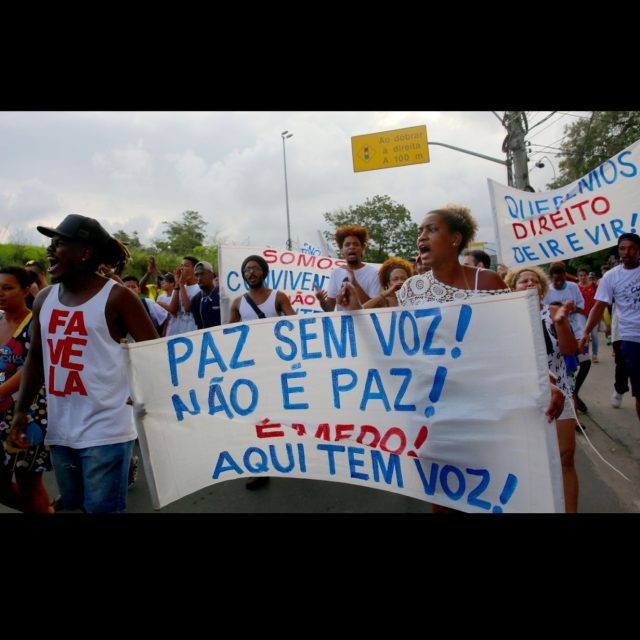
Foto: Divulgação/Justiça Global.
Since its beginning, Justiça Global has committed itself to documenting cases of violations against human rights defenders. It released four editions of the On the Frontline survey, and other titles on the situation of public protection policies and human rights defenders in different states of the country.
Maria do Espírito Santo e Silva Tribute
In 2014, Justiça Global chose to create an award to recognize and value the work of women human rights defenders, who face violence based on their gender and because of their work. The tribute is named after Maria do Espírito Santo, a member of an extractive community and trade unionist from Nova Ipixuna, state of Pará. Maria and her partner, José Cláudio Ribeiro da Silva, were murdered in 2011 in an ambush by loggers and land grabbers.
Temporary relocation for human rights defenders
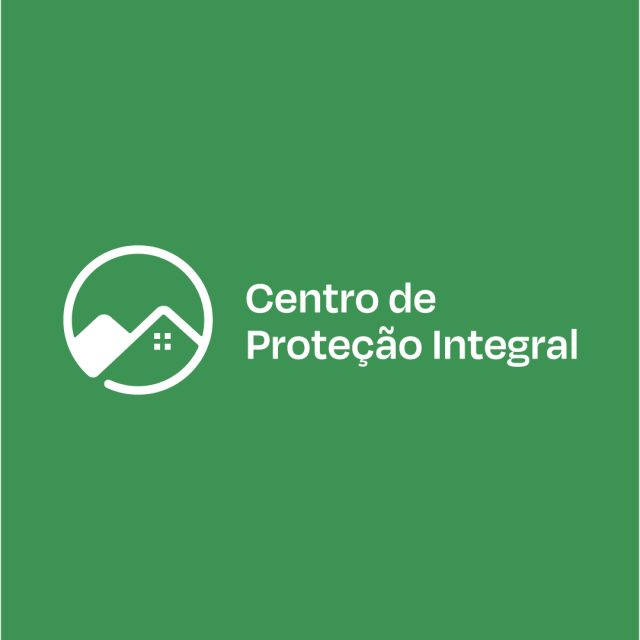
Imagem: Divulgação/Justiça Global
Justiça Global is the founder of the Integral Protection Center (CEPI), a place designed to offer temporary relocation and shelter to human rights defenders who are at risk or in an emergency and to strengthen their work. The space was developed based on a pilot project in 2022 — which was supported by Protect Defenders – EU — and is inspired by other initiatives of temporary shelter centers already developed on the American continent.
Political and Electoral Violence
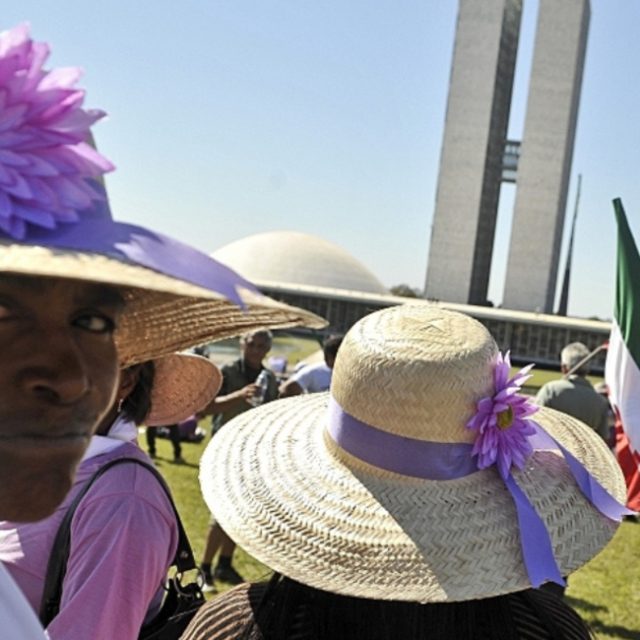
Mulheres do campo durante a Marcha das Margaridas em Brasília em 2015. Foto: Marcello Casal Jr/ Agência Brasil.
By creating obstacles or preventing political participation and the functioning of public institutions, and interfering with or interrupting elected terms, political and electoral violence compromises the integrity of democracy itself and constitutes a serious violation of human rights.
Peripheral and countryside regions and historically discriminated against groups are disproportionately affected by this type of violence. Consequently, these episodes end up destabilizing the representation and political participation of women, LGBTQIAP+ people, indigenous peoples, the black population, traditional communities, and workers, especially the poorest.
Following the murder of city (Rio de Janeiro, RJ) councilwoman Marielle Franco and her driver, Anderson Gomes, in 2018, Justiça Global began to monitor the issue more systematically. The organization sought to call attention to the violence that mainly affected those individuals working in the field of human rights and who began to experience violence after being elected or holding a public office.
Work at International Systems
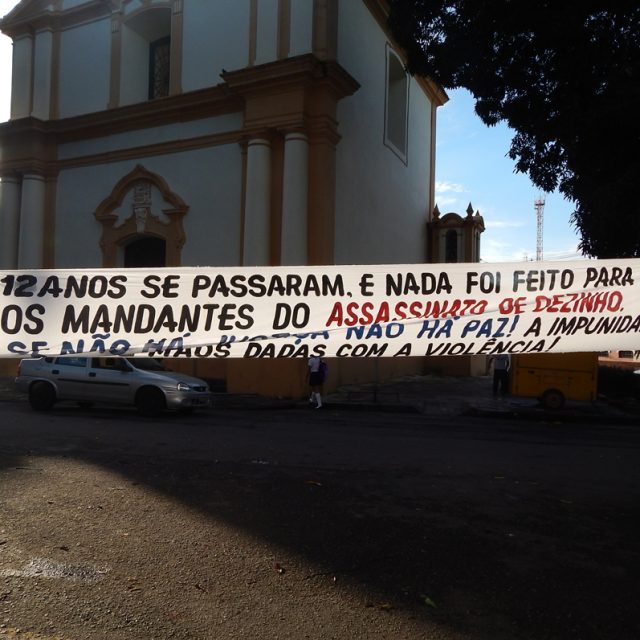
Since its foundation, Justiça Global’s strategy has been to act in international human rights systems — in the Organization of American States (OAS) and the United Nations (UN) — by submitting complaints and information, acting as amicus curiae, requesting hearings, monitoring visits, and petitioning cases.